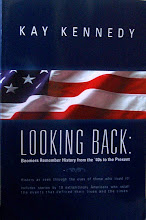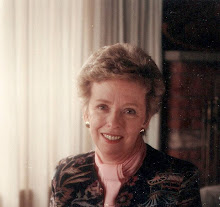The ‘60s were the most tumultuous in recent history—and possibly in all of history. Certainly, none of us expected the decade to become a defining period in our lives. The emotional experience of living through the ‘60s remains like a fresh wound forever etched upon my mind—as if it happened only yesterday.
As the ‘60s dawned, we were already faced with the possibility of nuclear annihilation because of the Cold War. Children were afraid that they might not grow up. Young people worried about what they could do to improve relationships between countries. Newlyweds were concerned about bringing babies into a world so frightening. And around all this turmoil swirled growing concerns about civil rights for blacks.
The boomers were ready to become involved in the political and social climate of the country because the future didn’t look at all promising. Most were brought up in middle class households with televisions that brought the world into their living rooms. They were raised with plenty of material possessions, yet they could see that others in their own country were doing without even basic necessities or rights. And a young, energetic presidential hopeful, John F. Kennedy, inspired them to “Ask not what your country can do for you. Ask what you can do for your country.”
Music became a rallying call for the young. After all, music was important to this first generation raised with rock ‘n’ roll. Rebelliousness had already become evident in the ‘50s, as some music concerned parents because of its suggestive lyrics and dance moves. And some youngsters were inspired to join the jazz and folk scene in New York and San Francisco.
Musicians began to explore writing and performing songs that inspired social change, and the folk revival was born. Suddenly songs had a message about freedom, justice, love for one another, and as the Vietnam War heated up, against war. Freedom marches were held throughout the South to help black citizens register to vote, and to realize that their participation in the process would ensure power. White youngsters went South to help organize civil rights marches, and as a result, some were tortured and murdered by racists who resisted change.
The Vietnam War was heating up during the early ‘60s, but little attention was paid to it at first. Meanwhile, in 1961, a group of Cubans who had relocated to the U.S. after Castro took over their homeland, tried to invade Cuba to free their country from Castro’s rule. Known as the “Bay of Pigs,” this failure led to even further Cold War crises. In October, 1962, Russia tried to supply Cuba with long-range missiles, which created the Cuban Missile Crisis and almost started a nuclear war. A blockade of ships carrying the missiles was enforced by President John F. Kennedy, and eventually they reversed course and headed back to Russia.
Most civilians were aware of the crisis and concerned about the outcome, but few were as terrified as military families, who had been directed to evacuate to underground bomb shelters. I was one of those who chose to stay put, knowing that there could not be a positive outcome to any nuclear attack, and that being in a shelter would only prolong the suffering. Luckily, that crisis passed, but it was the most frightening moment during the Cold War.
Then in November, 1963, President Kennedy was assassinated while riding in a motorcade through Dallas. One man was charged with the assassination, but conspiracy theories abound to this day. It seemed impossible that a man as inconsequential as Lee Harvey Oswald would be capable of creating so terrible a blow to the morale of the U.S.
Lyndon B. Johnson was sworn in as President on the flight of Kennedy’s body back to D.C., and soon he had escalated the war in Vietnam. He seemed to sincerely want to get a civil rights bill passed to ensure equality among all races, and to get legislation passed that would help all poor and elderly citizens. He finally pushed through the civil rights legislation, and he launched a War on Poverty. During his term in office, the Medicare Bill was passed, ensuring health care coverage for all Americans over sixty-five years.
Johnson was never as popular as Kennedy had been because he was seen as an interloper without the charm or sophistication of Kennedy. But Johnson was doomed mostly because of his support of the war in Vietnam.
Subscribe to:
Post Comments (Atom)


No comments:
Post a Comment